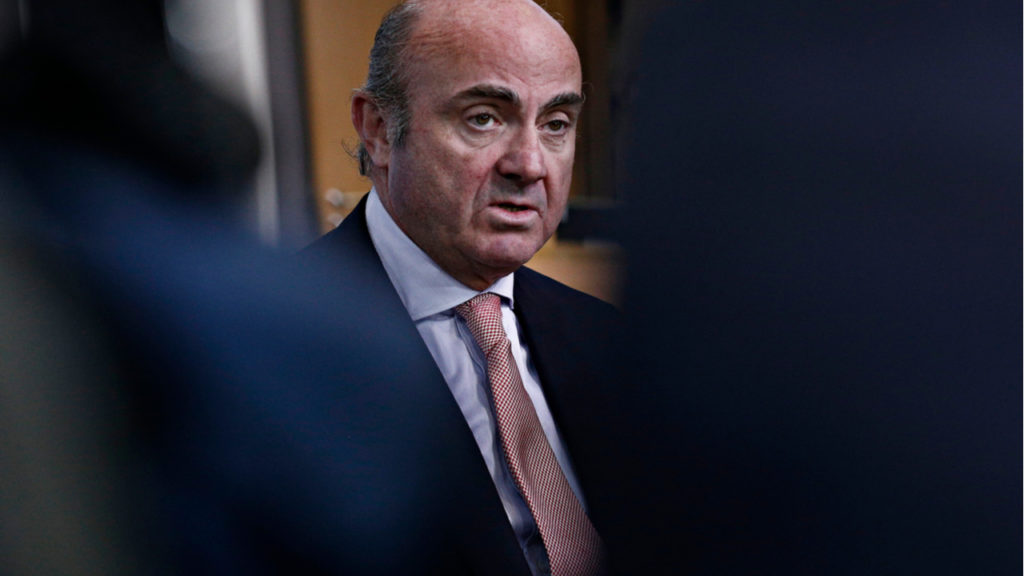ECB Vice President States Crypto Should Be Regulated Like Other Assets

European Central Bank (ECB) Vice President Luis De Guindos has stated he wants cryptocurrencies to be subject to the same rules that other assets are. The statements were offered in a presentation given as part of the summer courses offered by the European Parliament, where De Guindos declared his opinion about cryptocurrency regulation.
ECB Vice President: Crypto Should Follow Same Laws as Other Assets
Luis De Guindos, current Vice President of the ECB, stated he thinks crypto-assets should be regulated as any other asset in the market. De Guindos expressed his opinion during a series of summer courses sponsored by the European Parliament and the European Union. Specifically, on cryptocurrencies, he stated:
I would not prohibit them, but issuers must be required to follow the same conditions as those of other financial assets and avoid everything that has to do with money laundering or terrorist financing.
To De Guindos, cryptocurrencies can be easily used for unlawful purposes due to their pseudonymous traits. De Guindos has always taken a skeptical posture when it comes to cryptocurrencies, which he calls “crypto-assets” because according to his view, they don’t work as valid payment methods. At the same time, he stated that these crypto assets don’t have any impact on the financial stability of the region.
Relative Value
De Guindos also noted that these new tools don’t have an economic basis when compared to other more traditional assets. To him, the value of cryptocurrencies only comes from scarcity, rather than their relationship to other assets.
This is not the first time De Guindos has issued this kind of opinion on crypto. On May 19, he stated that cryptocurrencies aren’t real investments due to the fragility of their value proposition. However, the ECB is studying the feasibility of the creation of a digital euro. This would give the ECB an instrument to fight the rise of private alternative payment methods such as cryptocurrencies and those offered by fintech companies.
The public is still expecting the ECB to reach a decision on the issuance of a digital euro soon. De Guindos believes that such a currency is really needed. He stated that the digital euro is:
Something we just have to do. It’s not trivial in terms of the potential implications for financial stability and for monetary policy, so we will have to calibrate this project to minimize any potential negative consequences it could have.
What do you think of De Guindos’ stance on cryptocurrency? Tell us in the comments section below.



